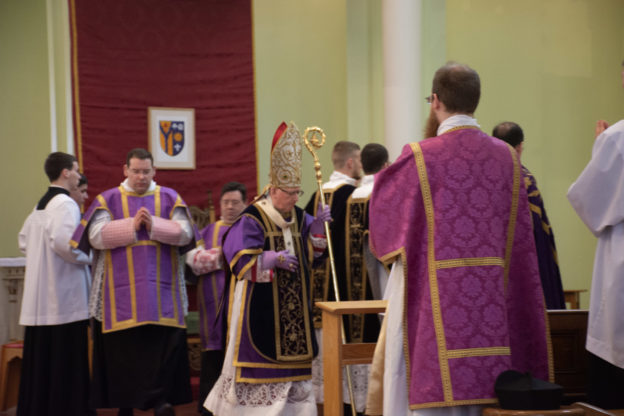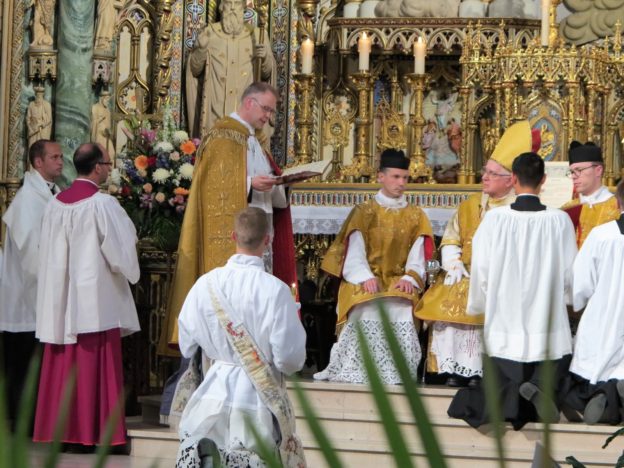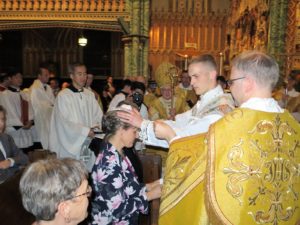You may access the photos of our recent Pontifical Mass for Confirmations by opening the link below. We wish to thank Archbishop Prendergast, S.J., for making this mass possible. 44 were confirmed this year ! Deo Gratias !



You may access the photos of our recent Pontifical Mass for Confirmations by opening the link below. We wish to thank Archbishop Prendergast, S.J., for making this mass possible. 44 were confirmed this year ! Deo Gratias !

Here are photos and video of Fr. Luc Poirier’s ordination to the priesthood which took place on Friday May 31st, Feast of the Queenship of Mary:
Fr. Luc Poirier, FSSP ordination photos/video
Special thanks to His Grace, Archbishop Terrence Prendergast, s.j., for ordaining Fr. Poirier and to Monsignor Berniquez, rector, for welcoming us and assisting us in the sacristy work. Many thanks as well to the servers, choir, organist, seminarians, visiting priests, and all those “behind the scenes” who contributed to such a beautiful Mass. May God reward you !


Our statue of St. Anthony of Padua has been restored, thanks to your generous contributions ! We would like to thank Brushworks for their fine work and our fellow parishioner Anastasia Bell for her assistance with the air brush treatment which helped remove the chipped paint !





The installation of the magnificent Limoges enameled Stations of the Cross gifted to Saint Clement Parish by a Québec City church has been completed.
The cost of preparing the walls and hanging the Via Crucis was budgeted at $7,000, an amount almost immediately met earlier this month by the very generous response of St. Clement parishioners.
Visually stunning, the Limoges Via Crucis the parish will long be proud of replaces the plaster casts formerly in place which had been substantially altered and painted over during the 1967 renovations carried out to the church’s interior.
Dating from 1890, the Limoges Stations were installed in a Quebec City chapel which later became the church of Notre-Dame-de-Jacques-Cartier. A recent reorganization of Québec City parishes resulted in the church’s closure in 2012.
For more information on the Limoges Via Crucis, please read the article The Limoges Via Crucis – A work of art for St. Anne by René Villeneuve with photos by Jean-Claude Grant.

The old St. Anne Church sanctuary lamp, symbol of the Real Presence of Our Lord in the Holy Eucharist, had been stored away in the choir loft after the renovations of the 1960’s. It is currently being restored. It weighs 95 lbs. It has many dents and needs to be replated. We hope to have the work done by March of 2014, when we plan to return it to its original location in the sanctuary. Please keep this project in your prayers.